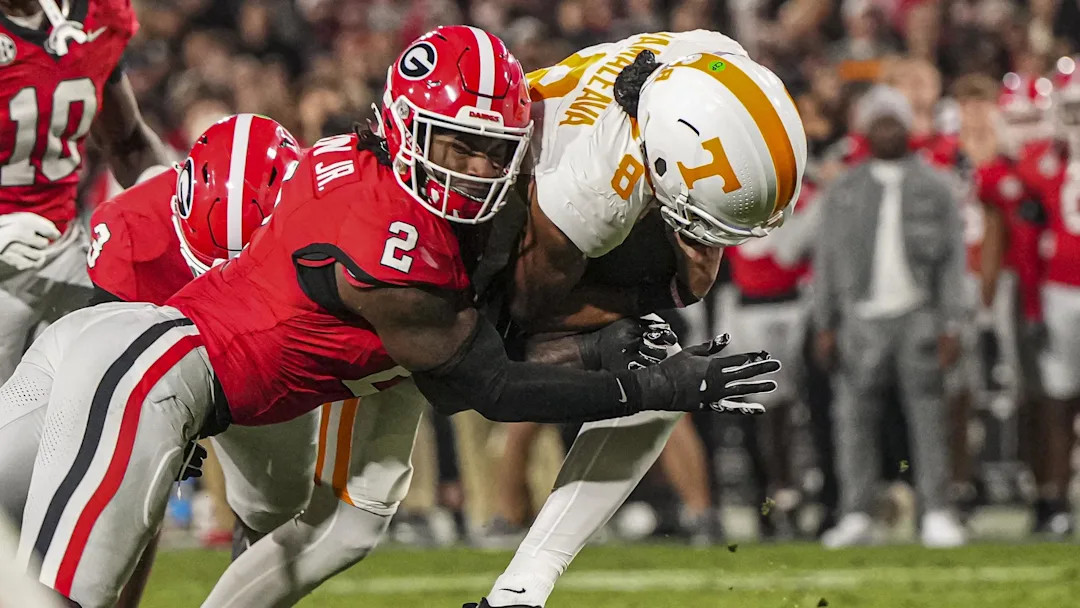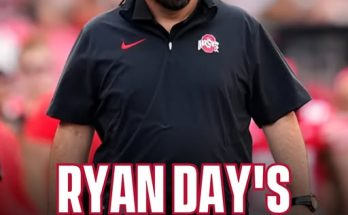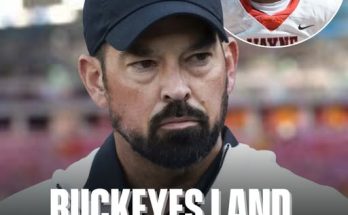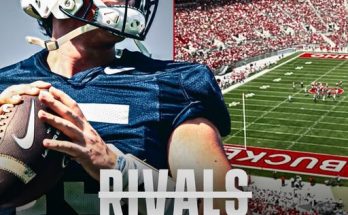The rapidly shifting world of college football has presented programs, fans, and players with new challenges that were nearly unthinkable just a few years ago. Among them, the emergence of Name, Image, and Likeness (NIL) deals has transformed how recruiting, retention, and roster management are approached. Nowhere is that shift more apparent than in the recent situation involving Tennessee quarterback Nico Iamaleava — a scenario that has become a cautionary tale for programs across the country. For Georgia Bulldog fans, in particular, there are several lessons worth taking from this unfolding story, both as a rival in the SEC and as a program aiming to maintain national dominance without losing sight of what makes it successful.
Nico Iamaleava was once hailed as the future of Tennessee football — a five-star recruit, a program-defining quarterback, and the face of the Volunteer resurgence under Josh Heupel. He was also one of the earliest and most prominent examples of a player whose recruitment was tied closely to NIL. Reports indicated that Iamaleava signed a deal worth approximately $8 million through Tennessee’s booster-run collective before ever stepping on the field. That figure set a precedent and marked a shift in how high-profile recruits would be pursued and retained in the NIL era.
But as Iamaleava’s situation at Tennessee unraveled — amid reports of dissatisfaction with his NIL arrangement, tensions over a desire to restructure his deal, and ultimately, his decision to leave the program — it has sparked important conversations about the sustainability of these agreements. Georgia, despite its own prominence and deep donor base, has largely avoided such turmoil. The Bulldogs have embraced NIL while also maintaining a foundation rooted in player development, culture, and accountability — something Georgia fans should not take for granted.
The first and perhaps most obvious takeaway is the importance of institutional control over NIL culture. Georgia, under Kirby Smart, has operated with a clear vision: NIL is welcome, but not at the expense of the team’s identity. The Bulldogs have navigated the NIL landscape with a focus on structure, educating their athletes and their families, and ensuring that deals are aligned with long-term development, not short-term ego inflation. Iamaleava’s situation represents what can happen when the opposite occurs — when an individual’s NIL profile becomes bigger than the program they are part of.
Georgia fans can take pride in the fact that no player, no matter how talented, has been permitted to operate outside the values the program has established. That isn’t to say Georgia hasn’t seen elite NIL deals — they certainly have — but there has been a consistency in messaging that NIL should be a reward for performance, not a promise used as leverage before a player earns a starting role. Iamaleava’s case highlights how dangerous it can be to structure an entire program’s marketing and fundraising approach around a player who hasn’t proven anything at the collegiate level. It’s one thing to pay a player who’s won big games; it’s another to build a financial house of cards around potential.
Another critical lesson for Bulldog fans is the role parents, handlers, and outside influences play in shaping a player’s career trajectory in the NIL era. In Iamaleava’s case, the deal was reportedly negotiated and managed by family members and close advisors — not a traditional agency or sports management firm with a broader vision for career progression. This can create complications, particularly when those involved in negotiations prioritize short-term financial goals over team culture, chemistry, and fit. Georgia, by contrast, has invested in helping families navigate the NIL process, offering educational resources to players and their support systems so decisions are made with a full understanding of implications.
It also emphasizes the importance of aligning NIL with actual market value. One of the undercurrents of the Iamaleava saga is the notion that his on-field performance — while solid — may not have justified the scale of his original deal, let alone a doubling of its value. This disconnect between perceived value and real-world performance is a slippery slope. At Georgia, Kirby Smart has been blunt about the importance of production. It’s not enough to be talented — players must contribute to team success. Bulldog fans should appreciate that Georgia’s NIL strategy rewards development, loyalty, and results — not hype.
Additionally, the Iamaleava situation reveals the potential for NIL-related issues to fracture a locker room. When players begin to feel that others are receiving special treatment, or when money becomes a point of tension between teammates, it can erode the very fabric of a program. Georgia’s culture has long emphasized brotherhood, accountability, and internal competition. That’s part of why Smart has kept the program so steady despite NFL departures and high-profile recruits coming in year after year. He’s built a system where the team comes first, and players understand that personal success will come as a byproduct of team success — not at its expense.
This brings us to the idea of sustainability. Georgia’s rise to the top of the college football world has not been fueled by flash-in-the-pan moments or desperate moves to chase headlines. It’s been a slow, methodical build — rooted in coaching, recruiting, and an unwavering standard. NIL was never going to derail Georgia because it was never going to become the core of Georgia’s identity. For Tennessee, the attempt to leapfrog into national prominence by securing one star quarterback with a massive NIL deal may have felt like a shortcut. But shortcuts rarely hold up over time, especially in the SEC. Bulldog fans should remain confident in the program’s deliberate, measured approach — even as other programs reach for instant gratification.
Georgia has also managed to attract and retain top talent without the drama that often accompanies big-name transfers or contract-style disputes. Players like Brock Bowers, Carson Beck, and others have quietly gone about their business, trusting the process and benefiting from a system designed to elevate them both on and off the field. This isn’t by accident. It’s the result of a program-wide philosophy that values maturity, leadership, and character as much as it does speed, strength, or arm talent.
For fans, it’s a reminder not to get too caught up in the glitz of recruiting rankings or the buzz around NIL valuations. Yes, Georgia should compete for the best players in the country — and it does — but the real value lies in developing those players over three or four years, preparing them for the next level, and building a program where winning is a byproduct of excellence, not of marketing gimmicks.
If there’s one final takeaway from the Iamaleava situation, it’s that college football is still about relationships — coaches and players, teammates and each other, and programs with their fanbases. NIL is here to stay, but it’s not the foundation on which championships are built. Georgia has proven that it’s possible to embrace modernity without losing its identity. And as long as the Bulldogs continue to prioritize culture, development, and accountability, they’ll stay one step ahead of the chaos that’s consumed others.
So while the headlines swirl around Knoxville, Georgia fans can breathe a little easier knowing that their program isn’t built on a single star or an eight-figure contract. It’s built on winning habits, hard-earned trust, and a standard that doesn’t bend for anyone. The Iamaleava story might make for compelling drama elsewhere, but in Athens, the focus remains where it should — on the G, on the grind, and on the goal of staying at the top, one disciplined step at a time.



